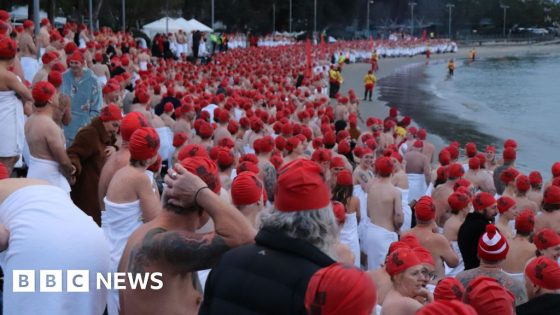As any of you who love chess will already have deduced, Barcelona coach Xavi Hernández and the LaLiga club are currently engaged in what is called “the endgame.”
Having used the disastrous home defeat to Villarreal in January to emotionally announce that at the end of this season he would quit a year early, Xavi has been asked dozens of times whether he’ll change his mind. These particular questions have come up more and more as results and performances showed a startling upward trend — 15 games, 10 wins, 3 draws and 2 defeats in all competitions — following his shock announcement.
Mostly, he has ducked such questions or given answers that are mildly negative. But after Champions League elimination by Paris Saint-Germain last week, he was unequivocal, responding to news that PSG coach and former Barça boss Luis Enrique Martínez had said that Xavi should stay for “years” with a curt reply:”Well, I won’t!”
– Stream on ESPN+: LaLiga, Bundesliga, more (U.S.)
Then, about 12 hours after the Clasico, which all-but guaranteed that Real Madrid will win the title — and, equally, guaranteed that Los Blancos will finish their season with three victories over Barcelona, two in LaLiga and one in the Supercopa, by an aggregate 9-4 score) — multiple sources have told ESPN’s Sam Marsden and Moises Llorens that ,if certain conditions are met, Xavi is willing to renounce his decision and stay to complete the remaining year of his contract at least.
Now, let’s face facts. This “endgame” should be an easy win for Xavi. Both club president Joan Laporta and vice president Rafa Yuste have publicly expressed their desire for the club legend to change his mind and stay: they’ve also been optimistic that he can be persuaded. In pure negotiation terms, salesmen and women the world over will tell you that declaring your position like that makes negotiation much tougher.
The words of Camp Nou executives, in theory, have made Barcelona the “buyers” in a “sellers” market. Right? They like Xavi individually — he was a trophy winner last season and Barcelona’s springtime performances have earned the club good cash. Winning their Champions League round-of-16 tie against Napoli ensures better guaranteed UEFA payments, while playing in the barnstorming quarterfinal tie vs. PSG will help Barcelona’s still-to-be-determined marketing pool share of UEFA prize money, which is divided up based on how attractive you’ve been to TV audiences and sponsors. Furthermore, Xavi has put his team in a position where they’re pretty much certain to qualify for next season’s revamped competition.
The upturn in form can be valued at something like €190 million. It’s hardly chicken feed, nor is it irrelevant to the financially under-pressure board that they’d need to pay no extra, unbudgeted money to retain Xavi. Unless they promoted B team coach Rafa Marquez to the first-team role or hired an unemployed coach, Xavi staying saves them a) paying compensation to another club for “pinching” their manager or b) having to face paying a much higher salary to someone like, for example, Hansi Flick or Thomas Tuchel than what Xavi’s getting right now.
You get the picture? Preserve the status quo, spend money on other things, hold on to a guy that they know and like, avoid having to go through the process of finding, appointing and then learning to live with an entirely new guy? Or do they rip it up, spend the money here and start again?
Maybe the whole thing flares out in a matter of days — maybe defeat in the Clasico and potentially witnessing Madrid win only their third league and Champions League double since 1958, will be too much for the board, and they’ll tell Xavi “Sorry, we’re taking your first answer: thanks and adios!” You never know. However, let’s try and look at the conundrum from both sides — and analytically, not just in light of the vitriol that the Clasico divide always generates.
Firstly, Xavi. You may well argue that he’d be ultrasmart to turn his back, walk away and then, retrospectively, point to the huge things he has done for this club since he took over as coach in November 2021. The training ground culture he inherited was a pigs’ breakfast of a mess: slack, player-centric, in a downward spiral and with an air of defeatism. That changed within weeks of his appointment and since then, Barcelona’s mentality and habits — plus their ability to legitimately aim at rejoining Europe’s top table, though they aren’t there yet — have all significantly improved. Walk away and those achievements will, with the passage of time, unquestionably be burnished by media and fan assessment. (Absence makes the heart grow fonder.) Excuse my cynicism.
More importantly, Xavi taught the club how to win again. Two trophies last season will, for fans, be dimmed in their significance by celebrating zero silverware this season — but the idea of Barcelona regularly winning Clasicos again, competing with Madrid for LaLiga (and actually winning one) and a restored ability to punch their weight in Europe were distant prospects when he arrived. His work in that task has been a bigger achievement than he’s being given credit for.
Finally, among other credits are Xavi’s daring, visionary and ultimately well-judged promotions of Alejandro Balde, Abde Ezzalzouli, Ferran Jutgla, Fermín López, Lamine Yamal (when he was 15), Marc Guiu, Hector Fort and Pau Cubarsí. Some of them helped the club turn a profit, while others are becoming standout, era-defining talents, earning the coach him huge kudos. It’s not easy, as a coach of a struggling brand-name club, to put your faith in kids no matter how talented they seem to be. I applaud him for that. Everyone should.
When Xavi looks at the way most of those young players have performed, alongside plans for the full recuperation of Pedri and Gavi as well as the next extremely promising wave of La Masia academy guys such as Mikayil Faye, Unai Hernandez and Guille Fernandez, you’d forgive him for saying “I want to be the farmer who harvests that crop. The future looks extraordinary!”
Not many people know this, but Xavi fought like an absolute tiger to prevent Manchester City signing both Lamine and Cubarsí in the last transfer window. It’s hard for Barcelona as a club to retain guys like them. Lamine’s release clause is €1 billion, but his deal only lasts for two more seasons, the club is brutally handicapped by Financial Fair Play rules, it’s hard to yet offer him a golden-handcuffs deal, and they’re only too aware what happened to Ansu Fati. There he was, a record-breaking striker, playing like a young football god then and, after a minor meniscus problem and some unsuccessful operations, now unrecognisable. He’s not currently contributing to the team and has massively diminished financial value to the club. Just ask Brighton & Hove Albion how he’s doing.
I’d bet that neither Lamine nor Cubarsí want to leave, but the latter has a minuscule salary and a €10m buyout clause. (Again, FFP makes it hard to robustly reshape Cubarsí’s salary, length of contract and buyout clause.)
Xavi fought so hard to persuade Barcelona that they should reject City’s attempt to capture these generational talents — it would be no wonder now if he wanted to remain in charge of their development. But were you to counsel him, you’d probably point to the threat coming over the horizon at high speed and with grim intent.
Madrid appear set to dominate for some time now. Their squad is terrifically assembled — well-planned, youthful and all under contract for a long time — they’re likely to add Kylian Mbappé this summer, they are guaranteed to add Endrick and, it’s fair to say, it seems increasingly certain that they’ll be eventually coached by Xabi Alonso, starting whenever Carlo Ancelotti has had enough or Florentino Pérez thinks it’s time to freshen up the coaching department. You can set your watch by it.
For every coach and director of football in LaLiga who wants to oppose Real Madrid over the next three or four seasons, it’s worth investing in anti-stress vitamins, a good therapist and efforts to toughen your resistance to criticism, disappointment and possibly being sacked. Particularly if you’re working for FC Barcelona.
Xavi’s “endgame” has been to announce his departure, improve the team’s performance and, now, to try and parlay the board’s wish for him to stay into guarantees about which players can be sold or released, which players will be given longer deals and which specific footballers will be brought in (some of the names include Joshua Kimmich, Juan Foyth and Álvaro Morata.)
Turn the argument around now and view it from the club’s point of view. Should they cajole and persuade him to stay? Should they meet his demands for how the squad is reshaped? Let’s review.
The two and a half seasons with Xavi in charge have, without question, hauled the football operation away from disaster and back to a somewhat respectable place. And like time-release vitamins, there’s goodness still to be released into the Blaugrana first-team ecosystem — this clutch of exceptional footballers aged from 15 to 21 (at least seven of them) are in good hands, will be taught and will be promoted.
Delaying the amount of attention and financial outlay that would be required in recruiting to replace Xavi — unless Marquez is promoted internally — for months, perhaps even years, is something that, right now, is obviously tempting. They know, too, that Xavi’s coaching, tactical decisions in-match, media relations and self-discipline on the touchline are all “work in progress” subjects. There’s nobody, including the coach himself I’d bet, who thinks that he doesn’t have huge room for improvement.
Memories in general, not just in sport, are short, and while I’m not claiming that Xavi is already threatening to develop the same ruthless, apparently unstoppable winning regime as Alex Ferguson, I would point out that when the legendary Scot took over an ailing, out-of-shape Manchester United in 1986, it cost him four years to win his first trophy, the FA Cup, and a total of seven years to win his first league title. It’s not the two men I’m comparing here, but the amount of reparative work, building and faith Ferguson required in order to build what became an Academy-driven, youth-based dynasty.
This is a volatile situation that could easily go either way — Xavi out or Xavi staying — and there are decent arguments on either side of that “endgame.” But, right now, anyone who thinks that Xavi is in the top 20 or even 30 problems that are preventing Barcelona from competing firmly with Real Madrid is fooling themselves. I hope he stays, and on his terms.
Source Agencies


